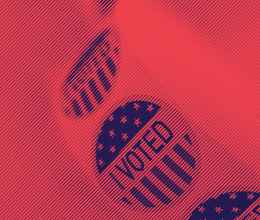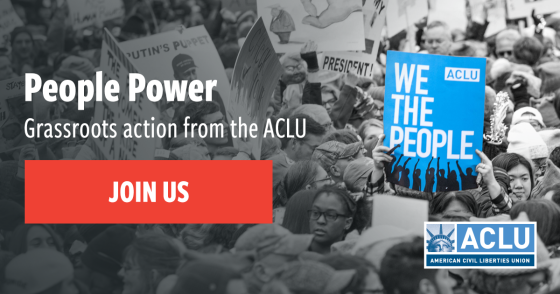
Update:
The Secretary of State's Office has confirmed dozens of errors identified by the ACLU. Read the full letter.
- The office has now corrected 51 voters' records to "active" - among them, voters who had never been convicted of a felony.
- We learned 46 people who had already properly updated their registration received the notices in error.
- 105 people had not attempted to register to vote but received the notice, possibly making them think they were ineligible to vote.
These issues only reflect errors that we flagged for the Secretary of State's Office. To date, the office has not had time to analyze the full list of voters who received these notices.
For more context and a link to voter information for people with past or current system involvement, keep reading.
Original Story
LINCOLN, Neb. – As Election Day grows closer, the ACLU of Nebraska is working to protect the voting rights of Nebraskans with current and past criminal system involvement.
This week, the advocacy organization will mail nearly 9,000 voting rights packets to Nebraska’s county jails and the homes of Nebraskans who received disqualification notices from elections officials. The mailing follows publishing of a new online resource with the same information.
The project seeks to clear confusion around voting rights for Nebraskans with past or present criminal system involvement and address potential errors in the state’s data or application of the law.
The concerns are connected to frequent legal intakes on these matters and ACLU research. After helping an Omaha man who wrongfully received a disqualification notice, the ACLU filed a public records request with the Nebraska Secretary of State’s Office for the list of Nebraskans who received the notices.
Nebraskans who have been previously convicted of a felony can vote two years after completing their sentence. Among potential errors the ACLU found, some people who received a disqualification notice had completed their sentences well beyond the two-year limitation, some had felony charges that had been reduced to misdemeanors or dismissed, and others had been wrongfully disqualified based on “unsatisfactory” release from probation – a circumstance that does not impact their right to the ballot box.
In response to concerns, the Secretary of State’s Office has committed to sending updated guidance to election officials, reviewing potential errors flagged by the ACLU, and correcting any verified errors before the general election.
ACLU of Nebraska Legal Director Adam Sipple said he hopes this action, combined with the mass mailing, will ensure every eligible voter can participate in the election.
“Voting is the cornerstone of our democracy and the right upon which all our civil liberties rest,” Sipple said. “When it comes to communication about voting rights, the acceptable error rate is zero. It shouldn’t happen. This is a top priority for the ACLU because confusion shouldn’t prevent people from practicing a fundamental right. We appreciate the Secretary of State’s openness in hearing these concerns and working collaboratively to reduce confusion about these issues moving forward.”
Nebraska’s arbitrary two-year waiting period is a frequent source of questions and confusion for voters and election officials. It is also a matter of racial justice. This restriction disproportionately impacts Black Nebraskans and other Nebraskans of color, who are overrepresented at every juncture of the criminal system.
As of July, Nebraska was one of just 11 states that disenfranchises voters after completion of a felony sentence through some kind of special requirement or post-sentencing waiting period.
The ACLU continues to advocate for voting rights restoration. Studies have shown that when people with a felony conviction can participate in the democratic process, they are more likely to stay out of the criminal system upon release.
This fall’s mailing follows a similar effort before the primary election. In April, the ACLU mailed more than 3,700 informational packets to local jails to help Nebraskans understand their voting rights and to ensure local correctional officers are facilitating voting rights for all eligible Nebraskans. The effort was met with positive feedback from corrections officials.
